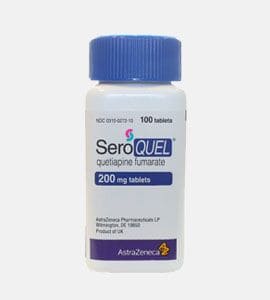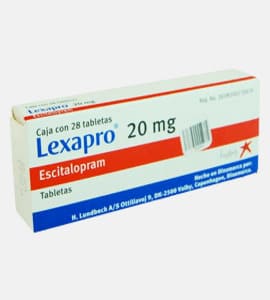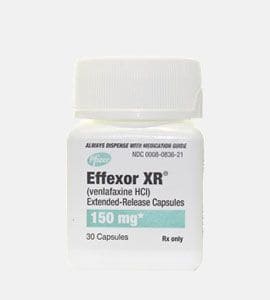What QUTAN is used for?
QUTAN is used to treat several illnesses, such as:
• Bipolar depression and major depressive episodes in major depressive disorder: You may find that you feel depressed, feel guilty, lack energy, lose your appetite or can’t sleep
• Mania: where you may feel very excited, elated, agitated, enthusiastic or hyperactive or have poor judgment including being aggressive or disruptive
• Schizophrenia: where you may hear or feel things that are not there, believe things that are not true or feel unusually suspicious, anxious, confused, guilty, tense or depressed
Talk to your doctor before taking QUTAN, if you:
• Are allergic to Quetiapine or to any of the other ingredients of this medicine
• Have heart problems
• Have low blood pressure
• Had a stroke or fits (seizure)
• Have liver problems
• Have a history of blood clots
• Have diabetes
• Are an elderly person with dementia (loss of brain function)
• Have or have had a condition called ‘sleep apnoea where you stop breathing for short periods during your normal nightly sleep
• Have a condition where you cannot completely empty your bladder (urinary retention)
• Have an eye problem
• Have a history of problems with alcohol or drug use
• Have a long-lasting and painful erection (priapism)
• Have thoughts of suicide and worsening of your depression
Tell your doctor if you are taking, have recently taken or might take any other medicines, including medicines obtained without a prescription and herbal medicines.
Tell your doctor if you are taking:
• Medicines used for viral and fungal infections
• Erythromycin or clarithromycin used for bacterial infections
• Nefazodone used for depression
• Phenytoin or carbamazepine used to treat fits
• Medicines used to treat high blood pressure
• Barbiturates used for anxiety
• Thioridazine or lithium used to treat mental problems
• Diuretics
• Medicines that can cause constipation,
Like all medicines, this medicine can cause side effects, although not everybody gets them.
• Rapid heartbeat
• Constipation, stomach upset (indigestion)
• Swelling of arms or legs
• Low blood pressure when standing up. this may make you feel dizzy or faint (may lead to falls)
• Increased levels of sugar in the blood
• Blurred vision
• Abnormal dreams and nightmares
• Feeling more hungry
• Feeling irritated
• Disturbance in speech and language
• Thoughts of suicide and worsening of your depression.
• Shortness of breath
• Vomiting (mainly in the elderly)
• Changes in the amount of thyroid hormones in your blood
• Decreases in the number of certain types of blood cells
• Increases in the amount of liver enzymes measured in the blood
• Increases in the amount of the hormone prolactin in the blood.
• Irregular periods
• Feeling weak, fainting (may lead to falls)
• Stuffy nose
• Dizziness (may lead to falls), headache, dry mouth
• Feeling sleepy
• Withdrawal symptoms include not being able to sleep, feeling sick, headache, diarrhoea, being sick, dizziness, and irritability. gradual withdrawal over a period of at least 1 to 2 weeks is advisable
• Abnormal muscle movements
• Changes in the amount of certain fats (triglycerides and total cholesterol)
• Weight gain
Storage
• Keep this medicine out of reach of children
• Do not use this medicine after the expiry date
• Store at room temperature (15-25ºC)


 English
English
 العربية
العربية
 Deutsch
Deutsch
 Čeština
Čeština
 Français
Français
 Italiano
Italiano
 Español
Español
 EUR
EUR



















